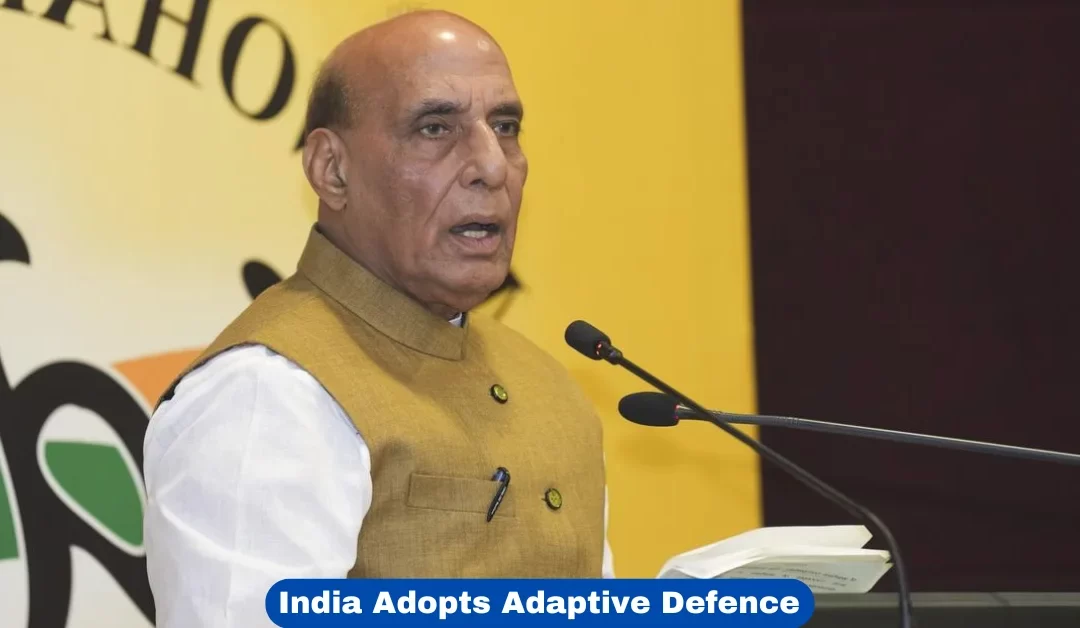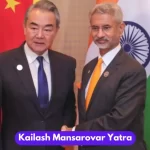India’s Defence Minister, Rajnath Singh, recently emphasized the importance of ‘Adaptive Defence’ as a key approach for the country to manage new and emerging security threats. Speaking at the inaugural Delhi Defence Dialogue organized by the Manohar Parrikar Institute for Defence Studies and Analyses on November 12, 2024, Singh highlighted that this strategic approach is not just a choice but a necessity in today’s fast-changing world.
What is Adaptive Defence?
Rajnath Singh described ‘Adaptive Defence’ as a forward-thinking strategy where a nation’s military and defence systems continually evolve to address emerging threats. This approach involves more than simply reacting to past events; it focuses on anticipating future threats and preparing proactively. Key aspects of adaptive defence include:
- Situational Awareness: Being fully aware of changing security scenarios and anticipating potential threats.
- Flexibility and Agility: Adapting strategies at both strategic and tactical levels to ensure readiness.
- Technological Integration: Using the latest technologies to bolster defence mechanisms.
- Resilience: Building robust systems that can withstand and adapt to various challenges.
Singh stated, “Adaptive defence must be at the core of our strategic plans and operational responses.”
The Need for a Collaborative Approach
The Defence Minister pointed out that modern warfare is increasingly influenced by advancements in technology and evolving global alliances. Traditional concepts of war are being reshaped as new doctrines, strategies, and technologies emerge. For instance, drones and swarm technologies are revolutionizing military tactics. Singh highlighted that India is positioning itself as a global leader in drone technology, which will not only strengthen national defence but also support the ‘Make in India’ and ‘Aatmanirbhar Bharat’ initiatives.
“India aims to become the world’s hub for drone technology. We have introduced several initiatives to promote research and development, enhance certification processes, and support Indian intellectual property in this field,” Singh said. This focus will boost the Indian economy and solidify the country’s position in the global defence market.
Success of ‘Make in India’ in Defence
Singh spoke proudly of the significant progress made in defence manufacturing and exports under the ‘Make in India’ campaign. He mentioned that India now exports defence equipment to over 100 countries, with the USA, France, and Armenia being the top importers in the 2023-24 period. Singh expressed confidence in achieving the ambitious target of exporting defence items worth ₹50,000 crore by 2029.
This achievement underscores India’s growing capability to produce high-quality, competitive defence products. Such progress aligns with the country’s broader vision of self-reliance and international collaboration.
Addressing Technological Challenges
Singh also addressed the complexities posed by rapidly advancing technologies such as artificial intelligence (AI), quantum computing, and nanotechnology. He noted that while these developments offer significant potential, they also present new vulnerabilities, particularly in cyberspace. “The ambiguities of cyberspace and the power of emerging technologies demand cooperation and the sharing of knowledge, information, and strategies,” he emphasized.
A Transnational Perspective
Singh stressed that as global threats become more interconnected, so too must the solutions. He argued that defence strategies cannot be limited to individual nations but should foster joint efforts and international partnerships. “Our interconnected world is both a blessing and a challenge. If our threats are transnational, so should be our solutions,” he stated.
This call for international cooperation underscores India’s recognition of the global nature of modern security threats. Sharing insights, data, and strategies with allied countries can bolster collective defence and enhance global stability.
Moving Forward
The Defence Minister’s emphasis on ‘Adaptive Defence’ signals a transformative shift in India’s approach to national security. By focusing on adaptability, foresight, and technological advancement, India is positioning itself to better handle evolving challenges. Initiatives such as promoting drone technology and boosting defence exports reflect a clear strategy to strengthen the country’s military capabilities while fostering economic growth.
As the world faces increasingly complex security challenges, India’s commitment to adaptive defence highlights its proactive stance in protecting its sovereignty and contributing to global security. This approach, built on anticipation, innovation, and collaboration, is set to become a defining feature of India’s defence policy for the future.































